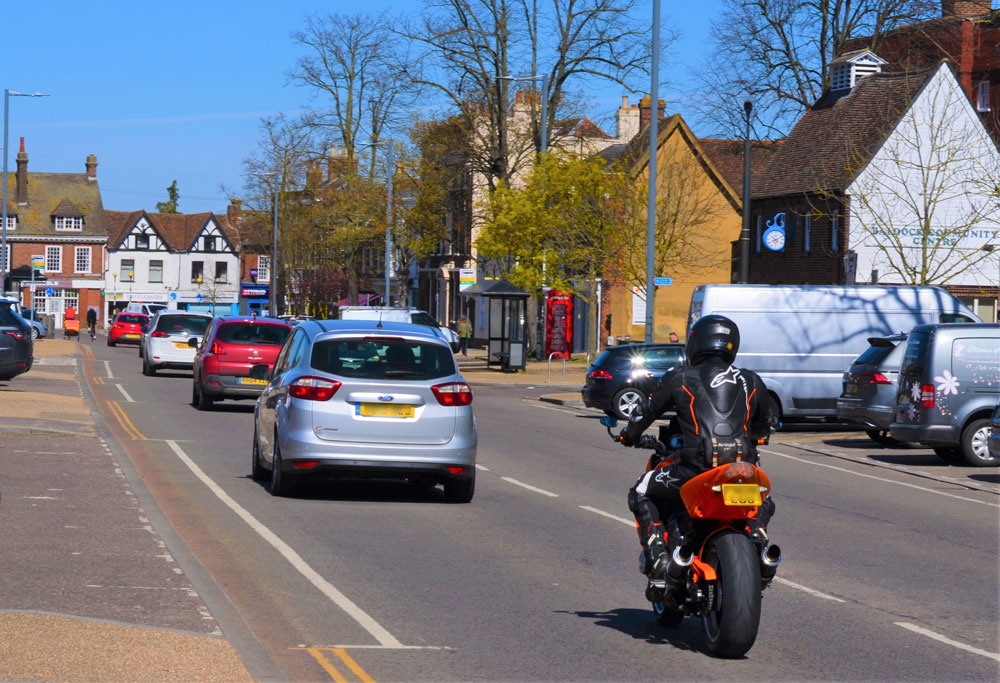
A new report says fuel duty and vehicle excise duty should be replaced with a per-mile charging system, with higher mileage allowances for those living in rural areas to ensure fairness.
The report, carried out by the Centre for Policy Studies, says motoring has been treated as a cash cow, with drivers paying far more through taxation than is invested back in the road network.
It points out that in 2021/22, drivers paid £33bn in fuel duty and vehicle excise duty. But the Government spent only £5.4bn on national roads and £6.4bn on local roads in the same period.
The report suggests introducing a ‘pay as you drive’ scheme for zero emission vehicles (ZEVs), becoming the only form of motoring taxation for those vehicles.
ZEVs would be charged a flat rate for every mile they drive – but still pay significantly less than their petrol and diesel counterparts. While everyone would receive a set allocation of tax-free miles every year, the allocation would be higher for those living in remote areas with fewer transport alternatives.
Eventually, as the share of ZEVs on the roads grows, this new per mile charging system could completely replace fuel duty and vehicle excise duty for all vehicles – exchanging an ‘outdated and onerous’ tax system with something ‘future-proof and much fairer’ towards drivers.
Tom Clougherty, CPS Research Director and co-author, said: “The Treasury has grown used to motorists being a cash cow, but with electric vehicles on the rise, those days are numbered.
“We shouldn’t replicate the old, punitive tax system, but it is still important that all drivers pay a fair amount for the roads they use. The ‘pay as you drive’ approach our report recommends would meet that objective and could be phased in gradually over the next decade or so.”
Inevitable a new system will have to be developed
The RAC has reacted to the report, saying the most important thing is that any new system is simple, transparent and fair to drivers of both conventional and electric vehicles
Nicholas Lyes, RAC head of roads policy, said: “As more electric vehicles come on to our roads, revenue from fuel duty and vehicle excise duty will decline, so it’s inevitable a new system will have to be developed.
“Our research suggests drivers broadly support the principle of ‘the more you drive, the more tax you should pay’, with more than a third (36%) saying a ‘pay per mile’ system would be fairer than the current regime – although three-quarters (75%) are concerned the Government might use such a system as a way of increasing the amount they are taxed.
“Whatever any new taxation system looks like, the most important thing is that it’s simple, transparent and fair to drivers of both conventional and electric vehicles. It’s essential that a new system replaces rather than runs alongside the existing taxation regime.
“Ministers should also give serious consideration to ringfencing a sizeable proportion of revenues raised from a new scheme for reinvestment into our road and transport network, not least to finally end the country’s plague of potholes.”
Voters ‘remain concerned’ about air quality and congestion
The report also concludes that road transport in Britain generates too much congestion and air pollution.
It suggests there is strong public backing for clean air zones to tackle air pollution, including among 2019 Conservative voters.
However, focus groups made clear that local governments need to work harder to bring the public on board and avoid the perception that such measures are simply about raising money.
Just as drivers would like to see money from road taxes spent on improving the roads, they also back money from clean air zones being used to improve transport or to help people upgrade to cleaner vehicles.
Comment on this story